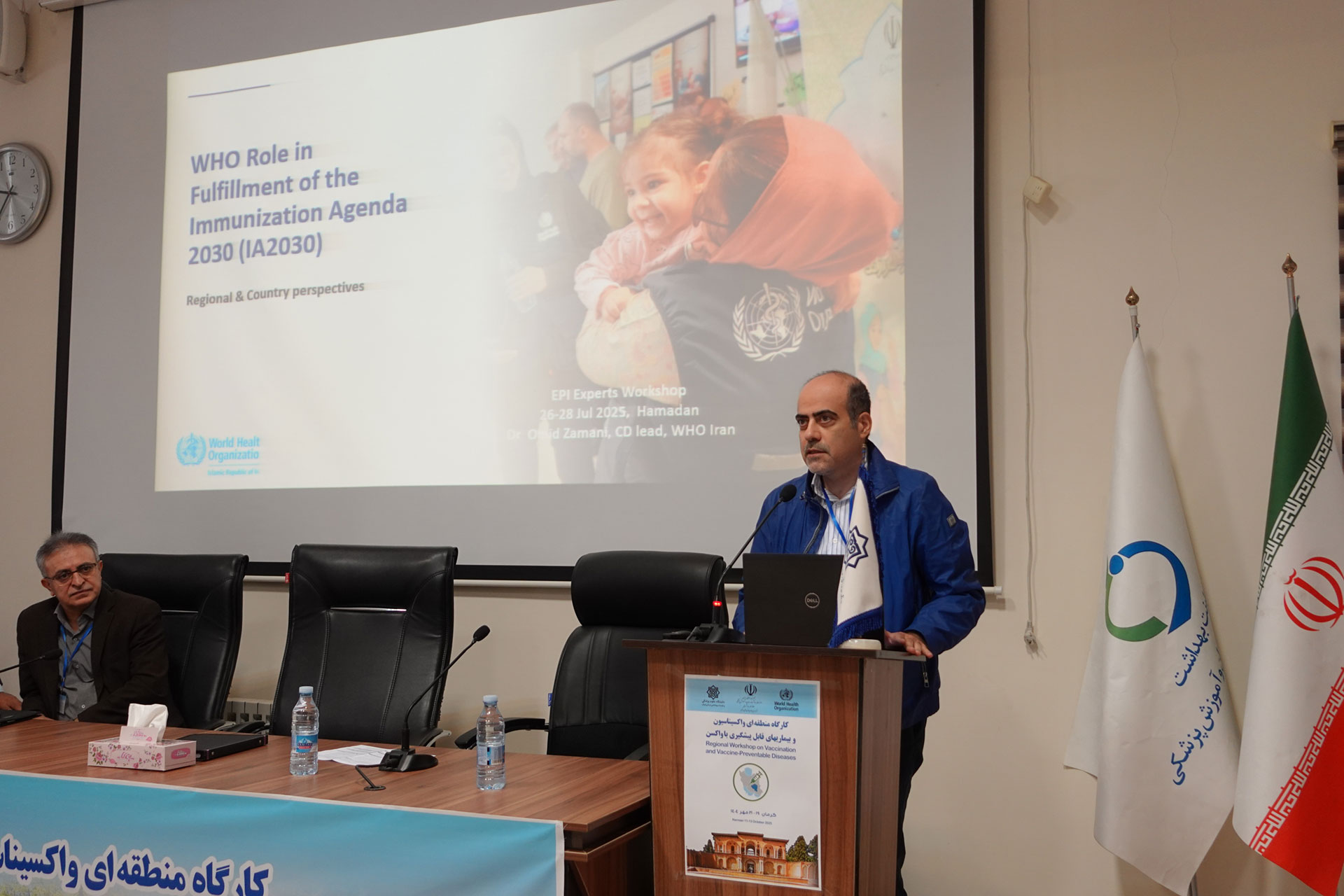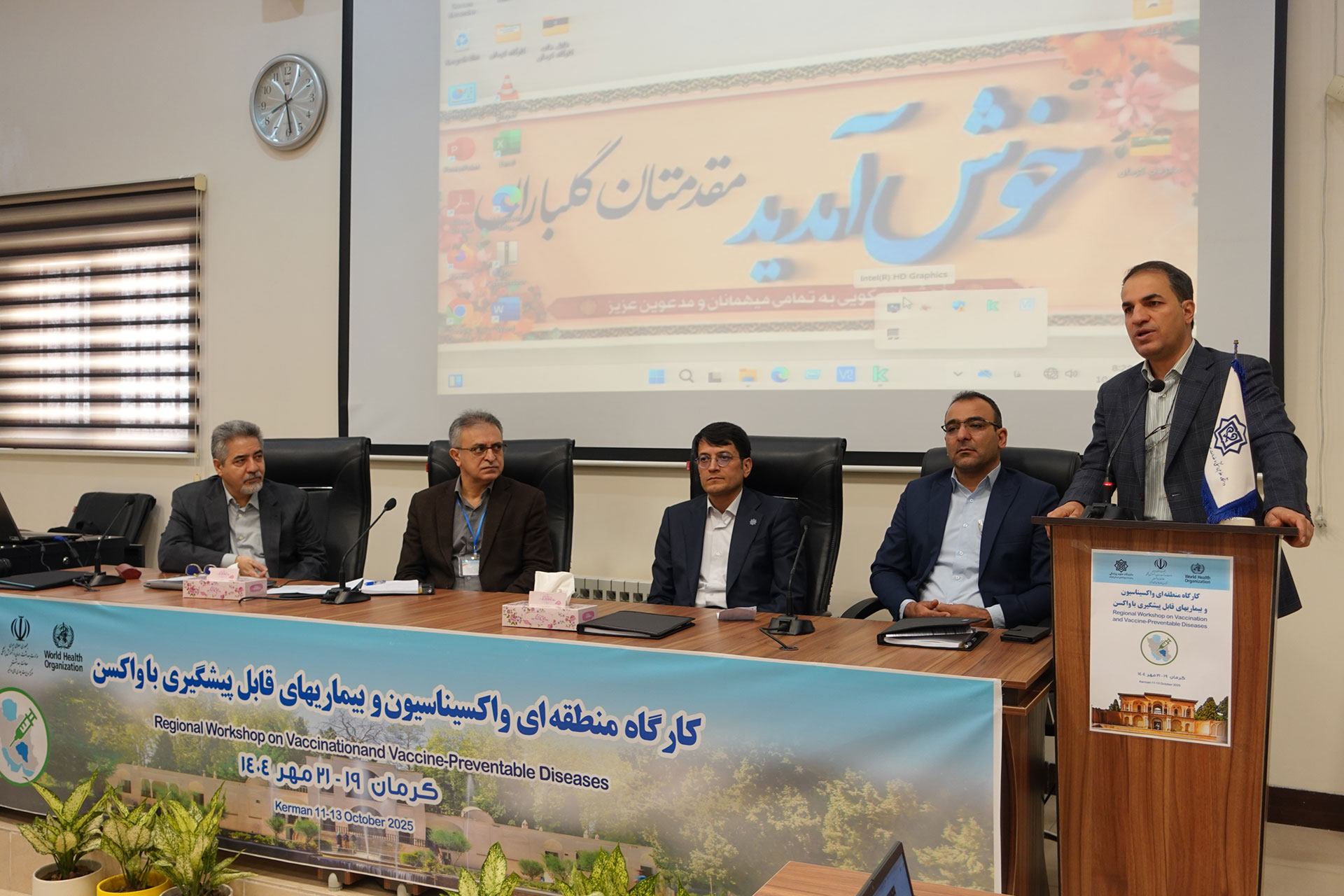Workshop hosted by Kerman University of Medical Sciences, with support from WHO and Gavi, focuses on planning, surveillance and tackling vaccine hesitancy
 23 October 2025, Kerman, Islamic Republic of Iran – Kerman University of Medical Sciences hosted a 3-day regional workshop on vaccination and vaccine-preventable diseases. Between 10 and 12 October 2025, the event gathered Expanded Programme on Immunization (EPI) officers and managers from 34 medical universities, the majority from eastern and southeastern Iran, to bolster national immunization capacities.
23 October 2025, Kerman, Islamic Republic of Iran – Kerman University of Medical Sciences hosted a 3-day regional workshop on vaccination and vaccine-preventable diseases. Between 10 and 12 October 2025, the event gathered Expanded Programme on Immunization (EPI) officers and managers from 34 medical universities, the majority from eastern and southeastern Iran, to bolster national immunization capacities.
The workshop received technical support from the WHO Country Office in the Islamic Republic of Iran and financial backing from Gavi, the Vaccine Alliance. The training focused on strengthening immunization planning, providing updates to national guidelines, enhancing cold chain management, improving surveillance of adverse events following immunization and fostering effective community engagement.
High-level officials from the Ministry of Health and Medical Education (MOHME) addressed key priorities. Dr Ghobad Moradi, Director of the Centre for Communicable Diseases Control, emphasized vaccination's critical public health role and addressed cutting-edge topics, including the targeted use of artificial intelligence in immunization programmes and strategies to boost coverage among migrant populations.
Dr Mohsen Zahraei, National EPI Manager at MOHME, reviewed 50 years of EPI achievements in the Islamic Republic of Iran and outlined future plans, including "supplying influenza vaccines to key groups, organizing national and regional meetings and advancing measles elimination, polio eradication and central cold storage expansion".
 The workshop provided a platform for interactive discussions and practical problem-solving. Dr Omid Zamani, National Professional Officer from the WHO Country Office, led a session on the global Immunization Agenda 2030 (IA2030), sparking dynamic discussions on national priorities. Participants also collaborated on group assignments to develop and present innovative, practical solutions to address regional challenges like vaccine hesitancy.
The workshop provided a platform for interactive discussions and practical problem-solving. Dr Omid Zamani, National Professional Officer from the WHO Country Office, led a session on the global Immunization Agenda 2030 (IA2030), sparking dynamic discussions on national priorities. Participants also collaborated on group assignments to develop and present innovative, practical solutions to address regional challenges like vaccine hesitancy.
Other essential topics covered included a review of the new national immunization guidelines, vaccine procurement and surveillance systems for diseases like meningitis, diphtheria, tetanus and pertussis.
An online evaluation survey conducted by WHO at the workshop's close revealed high participant satisfaction with the event's organization, content and trainers.
Equipped with updated knowledge and practical tools, attendees can now cascade the training to provincial and local health teams, amplifying immunization efforts and advancing Iran’s commitment to achieving IA2030 targets.








